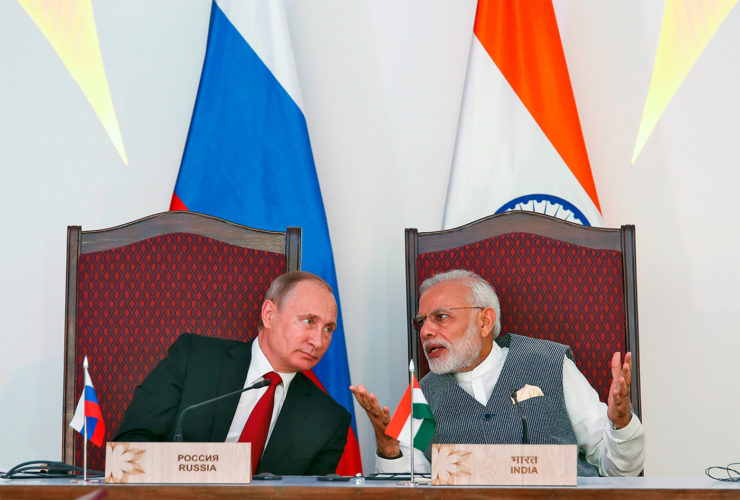
Relations between the two countries have always been friendly and trusting. Their distinctive feature is the absence of unresolved or problematic issues, the determination of the parties to build up multifaceted mutually beneficial cooperation in various areas on the basis of respect, trust and mutual understanding. Russia, just like the Soviet Union before, has never let this great Asian power down and always provided it with the necessary help and due assistance. And India fully reciprocates and considers the Russian direction of its foreign policy as a priority.
It is gratifying that even in today’s rapidly changing world and new geopolitical conditions, the Russian-Indian factor is not subject to any opportunistic fluctuations and considerations. The Collective West, primarily the United States, is tempted to pull New Delhi to its side and drive a wedge into Russia’s steadily developing relations with India, including by using the Chinese factor in the context of the existing territorial problem between the two countries. Washington’s attempts to engage India in anti-Russian or anti-China rhetoric in connection with New Delhi’s participation in the quadrilateral Indo-Pacific security cooperation that brings together the US, Australia and Japan have also failed. Western attempts to get India to join anti-Russian sanctions and a hostile campaign over the Ukrainian events have failed as well. New Delhi, despite the futile efforts of Westerners, has not curtailed its cooperation with Russia and took a balanced and productive position on the Ukrainian crisis, calling for a political settlement of the conflict. It was through India’s able chairmanship of the G20 at its various forums that New Delhi was able to come out with balanced statements and steer the community away from politicized and anti-Russian diatribes in light of the Ukrainian developments. New Delhi was visited by numerous Western dignitaries, but their persistent efforts to encourage India to take any steps that went against the friendly nature of its relations with Russia were doomed.
India is pursuing a fully independent foreign policy and is averse to any pressure. It continues its course for the full development of particularly privileged ties with Russia. Along with the sustained trusting political dialog, the unprecedented growth rate of trade between the two countries is impressive, reaching a record high of nearly $50 billion, a 5-fold increase from 2021. Despite the efforts of the West, bilateral military-technical cooperation continues to strengthen, although, admittedly, the Americans are insistently pushing into some areas of our military cooperation. Nevertheless, the two bilateral intergovernmental commissions on trade and economic, scientific and technical, cultural and military-technical cooperation continue to work fruitfully and help strengthen multifaceted interaction.
Fortunately, New Delhi is successfully cooperating with the BRICS and SCO members, is an active supporter of the creation of a new, more democratic multipolar world order, and in this regard stands in solidarity with the efforts of Moscow and Beijing to ensure global and regional security. It is noteworthy that Russia’s close strategic partnership with India, as well as with China, is increasingly establishing itself as an important factor in the current uneasy world order.
Russia is grateful to the Indian leadership for its consistent policy of expanding ties with our country and its balanced course in the international arena. Such close cooperation fully meets the national interests of the two countries and the aspirations of their peoples, is forward-looking and has excellent prospects. No one and nothing can prevent the progressive and reliable partnership of two close countries and peoples.
Anvar Azimov, Ambassador Extraordinary and Plenipotentiary and Senior Research Fellow of Moscow State Institute of International Relations, specially for the online magazine “New Eastern Outlook”.